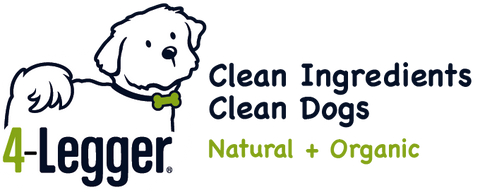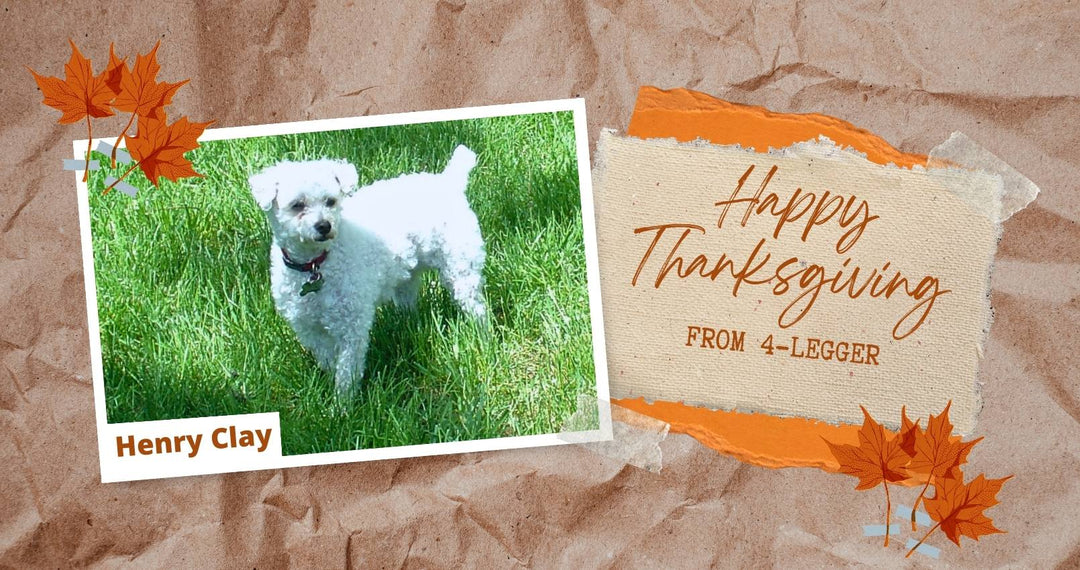Lesson 3: Bubbles are Fun but may Irritate to Your Dog's Skin!
What she said next was also no surprise - that she was trying to convince her granddaughter to use it on herself but she refused saying it was "too thin".
This is the uphill educational battle we face when trying to bring a truly natural product to the market with so many products claiming to be "natural" that aren't.
To the touch, you would expect that one natural product shouldn't be vastly different from another. Yet, when you use 4-Legger, the first thing you notice is that it is not as viscous (thick) compared to products that greenwash the word natural.
When asked why, we reply "It is because we left out the bad stuff."
So what is the "bad stuff"? While there are a number of chemical ingredients that can make a product thicker, the most commonly used are called sulfates. Sulfates also make the product lather, give the appearance of sleek and shiny fur/hair, and capture the dirt that washes out in the rinse. The sulfates also strip the natural oils from your dog's skin/coat and irritate their skin. Unless the irritations become infected, you will likely never notice as you don't see their skin under all that fur/hair!
But my dog's shampoo says it is "naturally derived from coconuts". Indeed it does say naturally derived because sulfates are derived from lauryl alcohol (from coconut oil or other plants) or petroleum - all of which manufacturers consider "natural ingredients". Manufacturers have dropped the chemical names and adopted the greenwashed terminology of “coconut based cleaners”, “naturally derived from coconuts”, “vegetable based cleaners”, or “coconut based surfactants”. Don't be fooled - it is a sulfate!
The two most commonly used sulfates are sodium lauryl sulfate (SLS) and sodium laureth sulfate (SLES). While SLS is more harsh than SLES, both irritants can cause redness, dryness, and itching. Health Canada, the European Union, and the U.S. Food and Drug Administration (FDA) consider SLS and SLES safe, when not contaminated with byproducts, yet classify them as irritants.
Byproducts? You mentioned byproducts?
The process of converting the petroleum or a plant into a cleaning agent (detergent) results in byproducts - often called a contaminate. Byproducts do not have to be included on the list of ingredients and depending upon the manufacturing process, they may be found in high or low quantities. The byproducts may or may not be removed at the end of the chemical process. Removing byproducts is an additional cost and there are no regulations that force manufacturers to remove them.
The Organic Consumers Association participated in a 2008 study that tested 100 common brands to look for a contaminant (byproduct) of this process. The contaminant is called 1,4-dioxane - a cancer-causing compound. Their findings were shocking. Many commonly used brands were contaminated with 1,4-dioxane (dioxane) including the following: Kiss My Face, Nutribiotic, Jason, Ecover, Citrus Magic, 365, Alba, Lifetree, Giovanni, Seventh Generation, Method, Earth Friendly Products, and Sea-Chi Organics.
The products tested were ones that humans use on themselves and all companies that make "natural" claims! There have been no studies that looked at contaminants in dog products.
The Environmental Protection Agency (EPA) has listed 1,4-dioxane as a likely human carcinogen - meaning it can cause cancer. Noncarcinogenic effects include possible health issues to the nervous system, liver, and kidneys.
One must also consider the environmental impact as dioxane can enter our environment through waste streams such as wastewater treatment plants and landfills. Dioxane can also enter our environment through manufacturer waste streams, if they did clean it from the product, but didn't dispose of it properly.
Organic standards do not allow SLS, SLES, or ingredients that go through these chemical processes. Products that are certified under the USDA National Organic Program have zero 1,4-dioxane!
Here is what you can look for on the label to avoid these ingredients:
- Sodium Lauryl Sulfate
- Sodium Laureth Sulfate
- Ammonium Lauryl Sulfate
- Ammonium Laureth Sulfate
- Sodium Coco Sulfate
- TEA Lauryl Sulfate
- MEA Lauryl Sulfate
- Natural cleaners
- Coconut based cleaners
- Naturally derived from coconuts
- Vegetable based cleaners
- Coconut based surfactants
If you do choose to use a shampoo with SLS and SLES because you feel that the company spent the extra money and time to remove the contaminants and aren't concerned about being an irritant, you should be very careful around your pet’s eyes. SLS has been linked to the development of cataracts and in young pets, SLS may cause permanent damage to the protein formation in the eyes which could lead to blindness.
Ready for Lesson 4 of buying a natural dog shampoo? Go here!




